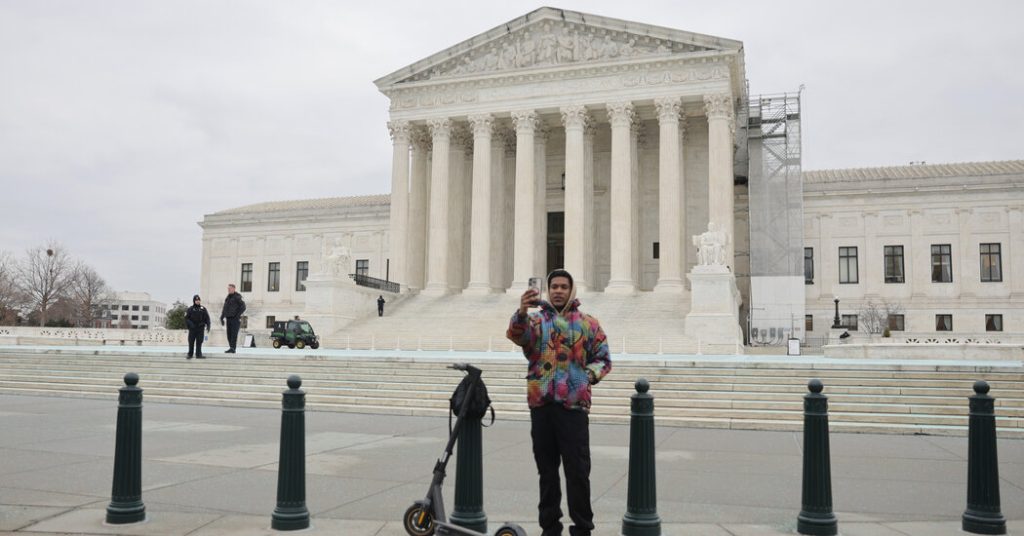Riri Bichri burst into tears on Friday morning while discussing news that the Supreme Court had ruled against TikTok, rejecting the company’s arguments against the law that effectively bans it in the United States next week.
“It’s really hitting me because I feel it’s like in a world where there’s so much judgment, TikTok provided a place where I can be free, I can be cringe, I can be who I am,” said Ms. Bichri, a content creator based in New York best known for her 2000s nostalgia parody videos.
“I shouldn’t cry about something so stupid, but it really changed my life,” she added.
For TikTok creators, it’s a sad and stressful time.
In the days leading up to the ruling, creators have been posting memorial tributes and preemptively eulogizing a platform many say has changed their fortunes and given them a sense of community.
“The people that I saw on my For You Page ended up becoming my real life friends,” said Arielle Fodor, who joined TikTok in March 2020.
At the time, she was a kindergarten teacher who had just been sent home as the pandemic began, and she was looking for a substitute for IRL connections.
She found what she was looking for on TikTok and then some, she said in an interview on Friday morning just after the Supreme Court ruling. Like Ms. Bichri, she was also mourning the platform, where she eventually gained 1.3 million followers and became a full-time content creator, leaving her teaching job.
“I listened to the arguments and the writing was on the wall,” Ms. Fodor said of the court’s decision. “I’m disappointed, obviously, but not shocked.”
As scrutiny on TikTok intensified over the last year, Ms. Fodor said she has worked to strengthen her presence on other social media channels.
“All of us have been preparing in a way,” Ms. Bichri said, echoing Ms. Fodor. “No one has really stuck to one platform.”
Some TikTok users already cross-post their content on Instagram, for instance, which introduced its vertical video feature, Reels, in 2020. And YouTube may be poised to draw so-called TikTok refugees. But TikTok is not easily replaced for many content creators, particularly for those who stand to lose income as a result.
“It’s a big source of the way that I make my living,” Ms. Bichri said. “Everyone will have to adapt.”
How exactly they will adapt is not yet clear. For now, creators in the United States are still adjusting to the idea of a world without TikTok.
“It makes me sad. To me, I feel like it’s way more than just social media,” Tareasa Johnson, better known online as Reesa Teesa, said in an interview earlier this week.
Ms. Johnson became an overnight sensation last year for a 50-part video series that dramatically recounted a relationship with a former paramour. The series of TikTok videos is currently being adapted for television.
“I’m one of those people who can honestly say that TikTok completely changed my life ,” she added.








